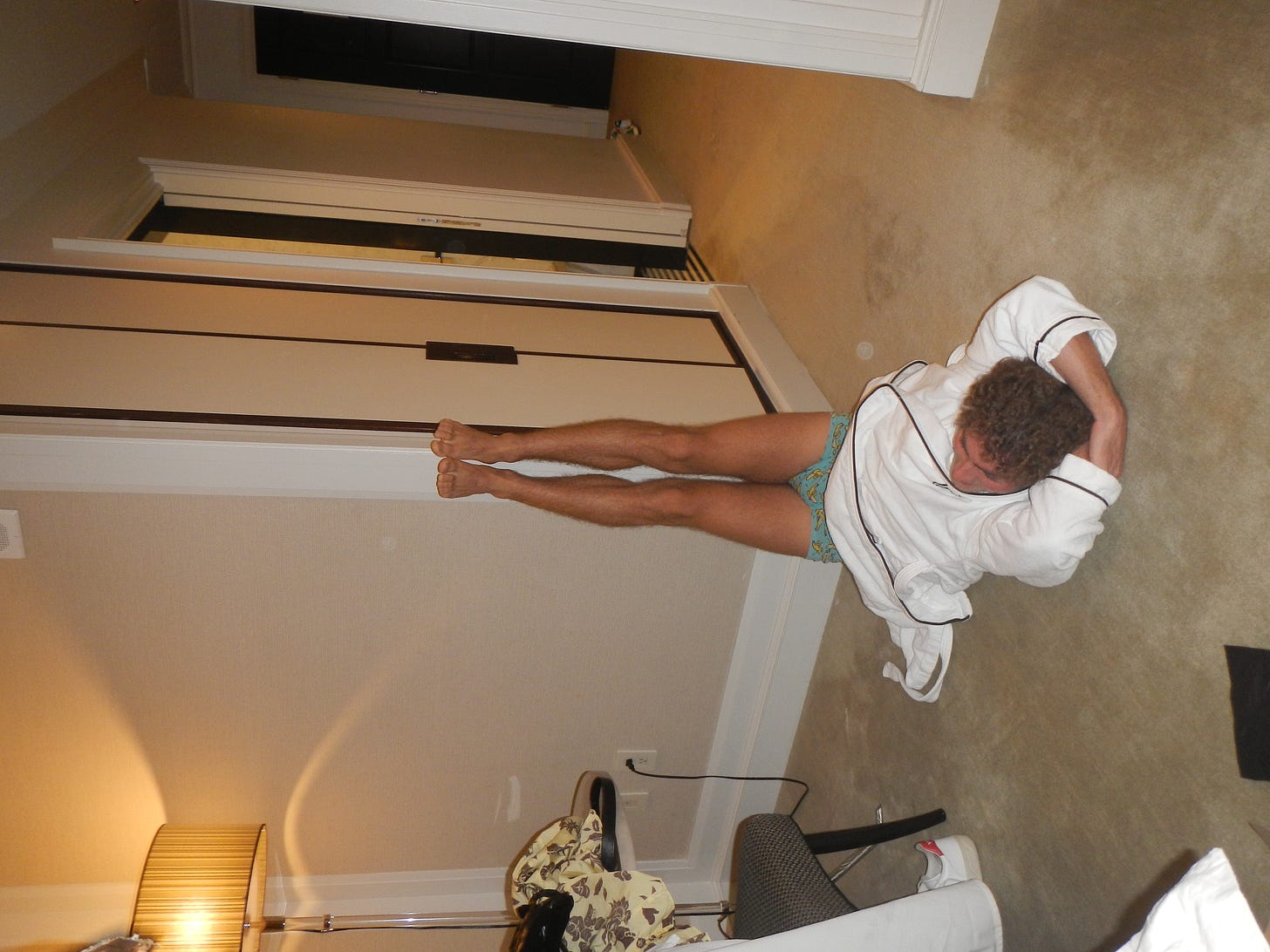Q: How do I find the right therapist?
Also known as the season to get our shit together
It’s officially the season to Get Your Shit Together. I typically make my to do lists in my notes app. Pretty basic, just the date on a Monday and the things I’d like to get done. I usually update it weekly and arrange things by time sensitivity (not to brag). Somewhere in mid-July I titled a note “Am I ever gonna do chores again?” and there the note has sat slowly getting longer and longer with tasks I’ve put off until now. I’d like to say that all the tasks on this list were not urgent but that’s not exactly the case. A big section that’s gone untouched is Doctor’s appointments (dentist, dermatologist, therapist). for some reason, in my brain and that of many of my friends, fall is the time to start therapy. So many times over the years I’ve had conversations with friends about what type of therapist one of us ought to get. DMNT EMDR IFS LCSW— there are so many acronyms involved in the search for a therapist that it makes you feel like you are pledging a sorority on another planet. Usually, I just have my sister send me a list of a few therapists that seem to fit the vibe I’m looking for. She’s a psychiatrist who recently started her own private practice and treats patients with addiction in Boston. Since I’ve benefitted from her guidance over the years, I thought it might be nice to extend it to all of you.
anonymous q&a
In this section, I answer questions anonymously submitted by readers of this substack. If you'd like to submit your own question, link here! This month, my iconique older sister will be answering a question about finding the right therapist. She’s a psychiatrist who recently started her own private practice and treats patients with addiction in Boston.
Question: “What should you consider when finding a new therapist? How do you decide between a social worker, psychologist or psychiatrist?”
Answer written by Lila Flavin:
This is a fantastic question and I’m excited to answer it this week. Below is the advice I would give a family member or friend looking for a therapist.
First of all, I appreciate the question because I think people don’t tend to pay enough attention to who their therapist is. In the culture right now, there’s this idea that therapy is helpful period. It’s talked about as this amorphous place where you speak your mind and get clarity on your most troubling traits.
The reality is that therapists are people. Just like when you talk to one friend about an issue, their response will be totally different from your other friends, one therapist will be different in how they respond from another.
The biggest thing I’d like to leave you with is that you don’t have to settle on the first therapist you meet with. Many therapists will offer an free introductory call where you can try and gauge what it’s like to talk to them. Do a few!
Going to an initial session takes courage. You’re meeting a stranger and telling about some very personal things about yourself. After the session, take some time to sit with how that person made you feel. Maybe there were some awkward moments. That’s normal. Maybe you feel overly exposed. That’s also normal. But go further. Were there also moments when you felt cared for? Did you feel a sense of control, like you could set the pace and volunteer the information that felt right? Try and tease out whether you’re having a normal “vulnerability hangover” versus a stronger feeling that you were misunderstood.
You generally want to feel that your therapist has a positive view of you and that this person you’re trusting with your inner world wants you to be happy. If you don’t feel that after the first session or two, it’s worth bringing it up with the therapist to see how they respond or trying someone different.
Also, regarding the vulnerability hangover, you have no obligation to share the hardest things during session one. You can think of the “intake” as taking place over several weeks. If a question feels too hard or personal, you can always say you’d rather answer that later when you know each other better.
One last point, therapy generally falls into two broad categories, behavioral therapy and psychodynamic therapy.
Let’s say for example you say to your therapist, “Geez everytime I go out with my coworkers for happy hour, I feel like everyone is judging me and doesn’t want me to be there.” A more behavioral therapist might say, “Let’s think about the story you’re telling yourself in this moment. Let’s and try and replace it with a more appropriate one.” A more psychodynamic therapist might ask you more questions about when you feel judged, how far back that goes, what some earlier memories are of that feeling with the hopes that as you understand the origins of this experience, it will change.
This is a TOTAL oversimplification, and most therapists do a combination of both, but it’s worth thinking about it as a future client. Do you want someone who is going take a problem you’re having and dig into it with you, uncovering all the layers, or do you want someone who is going to hand you something to try and then check back in with you next week on how it went.
Here are some more things to consider:
Cost
What is their fee per session? This can range from around $100-$400.
Are they in network with your insurance? If so, do they bill the insurance directly or do they require you to do so?
Many therapists are out of network with all insurance. If you have out of network benefits, this means you can submit a claim and typically the insurance will cover 50-75% (this varies by insurance).
Sites like www.psychologytoday.com and www.zencare.com will let you filter by your insurance so you can specifically weed out therapists you can’t afford.
If you can afford it, I think it’s really worth considering that for better or worse, in this current healthcare environment, you might have to pay for therapy just like you pay for other services. It sucks but it’s a reality.

2. Waitlists
Some therapists aren’t taking new patients currently but have a waitlist. Figure out how long you can realistically wait to see someone.
3. Gender, age, sexual orientation, race/ethnicity
Some people feel more comfortable talking to a therapist who is a woman, for example. Others specifically want to talk about certain aspects of their identity and don’t want to have to explain it. Whatever you reason is, it’s very common for people to seek out a therapist with a particular identity.
It’s also worth saying that being very selective about identity will significantly narrow the pool of available therapists. It might be worth meeting with a few people that fit other criteria and testing out whether they’re curious and open to learning about your identities.
4. Training background
Lots of professionals can provide therapy. In my experience, it doesn’t really matter whether it’s a psychologist, social worker, and psychiatrist. If you want someone who can also prescribe medications, that narrows it down to psychiatrists. Psychologists have gone through extensive therapy training as have many social workers. Sometimes psychiatrists and psychologists can be pricier but this isn’t always true. Many of the specific modalities, like Dialectical Behavioral Therapy or Acceptance and Commitment Therapy are additional add on trainings that a psychologist, social worker, psychiatrist, or counselor could all have experience with.
something to read
At this time of year I feel a bit too busy to read a full length book (tasks!!!) so I give you flash fiction, which, if you haven’t read much of it, feels like a punch in the face or swallowing something concentrated. I was introduced this one by George Saunders in class the other day and I can’t stop thinking about it.
THANK YOU FOR READING !
Some other things I have on my mind are why eels have never been witnessed mating and how one stays mentally stable as an astronaut stuck indefinitely up in space. Also, tennis. Very much tennis. I talked about my fleeting football obsession last month (that may or may not come back this year) but I don’t think I’ve mentioned my tennis obsession that has actually lasted one whole year. I revived a 2011 digital camera for the US Open and man was that INNER CHILD WORK HEALING. Until October xx








oooo i wish i had this years ago - i've seen some nut job therapists 😅 also, hello zoe on thursdays, i'm hope on sundays :)
❤️ ok I made it to the end and this digital camera as inner child work is so goofy and funny